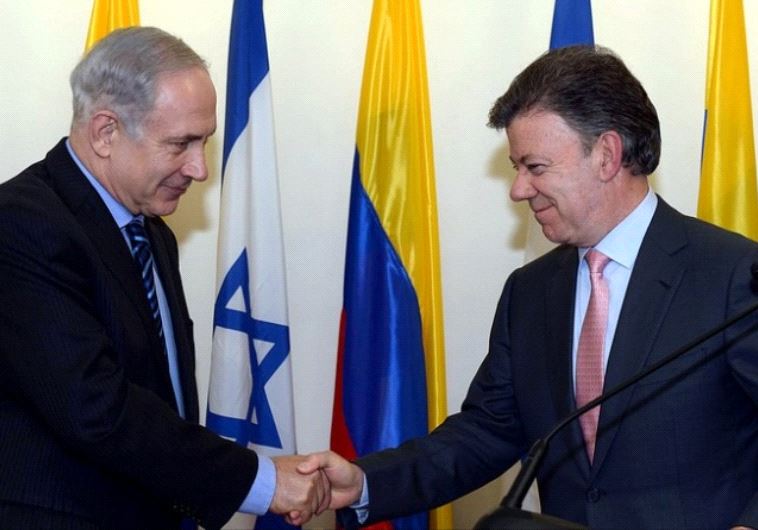Colombian Jewish leader: Netanyahu must appoint ambassador to Brazil
Marcos Peckel, leader of Colombia's Jewish community, urged Prime Minister Benjamin Netanyahu to visit South America.
 Prime Minister Benjamin Netanyahu and Colombian President Juan Manuel Santos Calderon in Jerusalem, June 2013
Prime Minister Benjamin Netanyahu and Colombian President Juan Manuel Santos Calderon in Jerusalem, June 2013